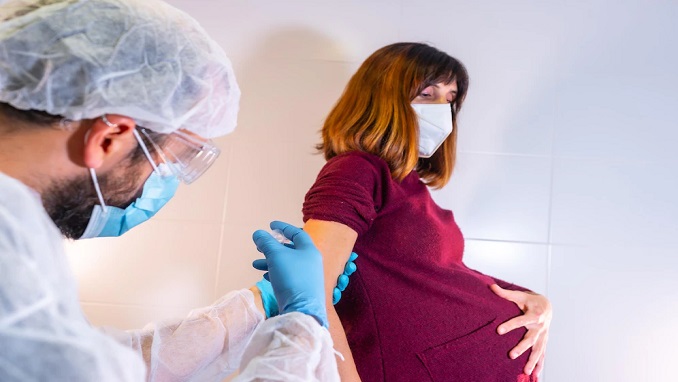Pfizer announced yesterday that results from the Phase 3 clinical trial of its maternal vaccine candidate against the highly contagious Respiratory Syncytial Virus (RSV) show that it has “met the success criterion for one of two primary endpoints,” by giving protection to newborns, the company’s press release says.
The ongoing randomized, double-blind, placebo-controlled MATISSE (MATernal Immunization Study for Safety and Efficacy) study investigating Pfizer’s “bivalent RSV prefusion vaccine” showed that, when given to the mothers late in their pregnancy, the jab is highly effective at protecting newborns from RSV through the first 90 days of life, the press release said.
Pfizer is a member of the Biotechnology Innovation Organization (BIO).
The RSVpreF investigational vaccine demonstrated 81.8% efficacy “for severe medically attended lower respiratory tract illness (severe MA-LRTI) through the first 90 days of life” and maintained a substantial efficacy of 69.4% “for infants over the six-month follow-up period,” the press release said.
RSVpreF was also well-tolerated and raised no safety concerns for both vaccinated individuals and their newborns, as indicated by the “pre-planned safety reviews conducted at regular intervals throughout the duration of the study,” the company said.
“This is the first-ever investigational vaccine shown to help protect newborns against severe RSV-related respiratory illness immediately at birth,” according to Annaliesa Anderson, Pfizer’s Senior VP and head of vaccine research and development.
Pfizer says it now plans to submit a Biologics License Application (BLA) to the FDA by the end of 2022, based on these positive results, and will submit the results for peer review.
Pfizer has two RSV vaccine candidates in the pipeline
If approved, RSVpreF could be “the first maternal vaccine available” to help prevent RSV in young infants, the age group in which, according to NIH, RSV annually causes “approximately 58,000 hospitalizations among children under five” and is “the most common cause of bronchiolitis in children younger than one-year-old,” Pfizer said.
“A maternal vaccine with high efficacy that can help protect infants from birth could substantially reduce the burden of severe RSV among newborns through six months of age, and will likely have a significant impact on disease in the U.S. and globally,” said Eric A.F. Simões, M.D., Clinical Professor, Pediatrics-Infectious Diseases, University of Colorado School of Medicine and Children’s Hospital Colorado, Aurora.
As we previously reported, there are currently no vaccines available for RSV although there are several in the pipeline, including candidates from BIO members Johnson & Johnson and GSK, whose “RSV vaccine reduced RSV cases in adults 60+ by 83% in the phase 3 trial of the jab”.
Per the press release, “Pfizer is currently the only company with an investigational vaccine being prepared for regulatory applications for both infants through maternal immunization and older adults to help protect against RSV.”
Back in late August, the company announced that results from its Phase 3 clinical trial RENOIR (RSV vaccine Efficacy study iNOlder adults Immunized against RSV disease) showed its vaccine candidate RSVpreF demonstrated an efficacy of 85.7% when administered to adults 60 years of age or older.




